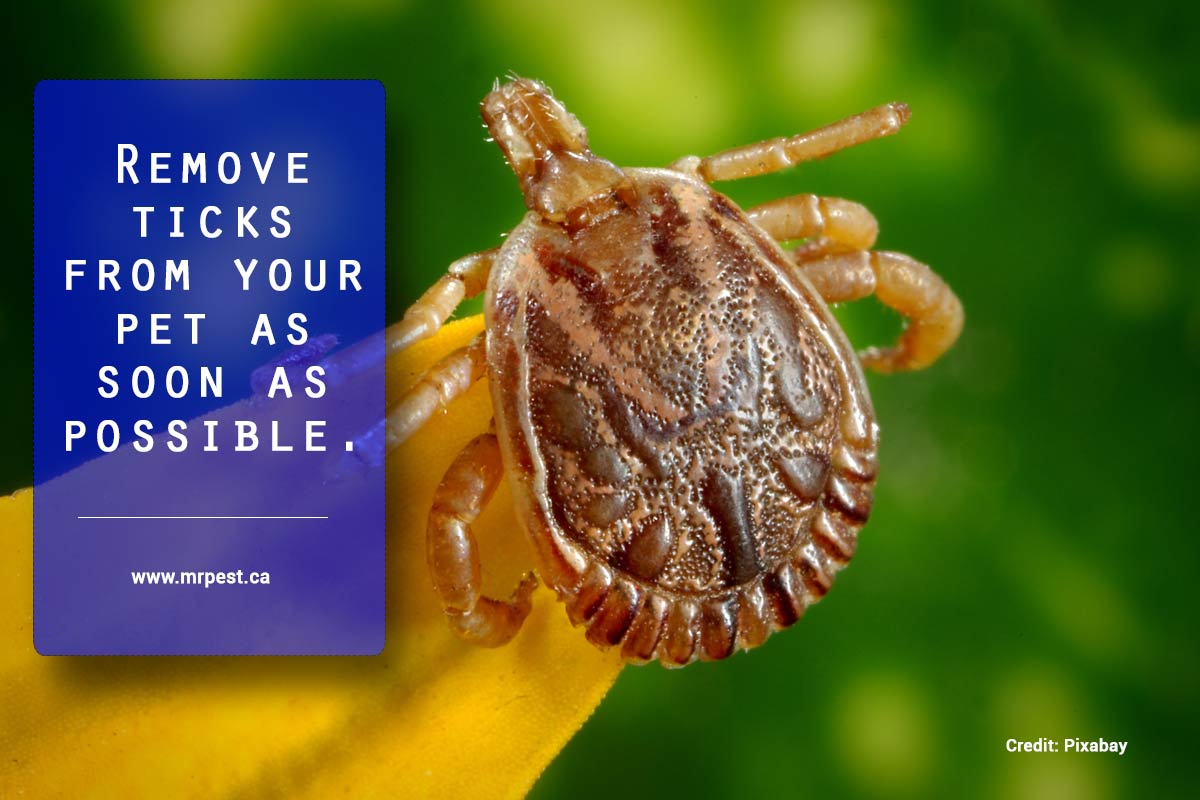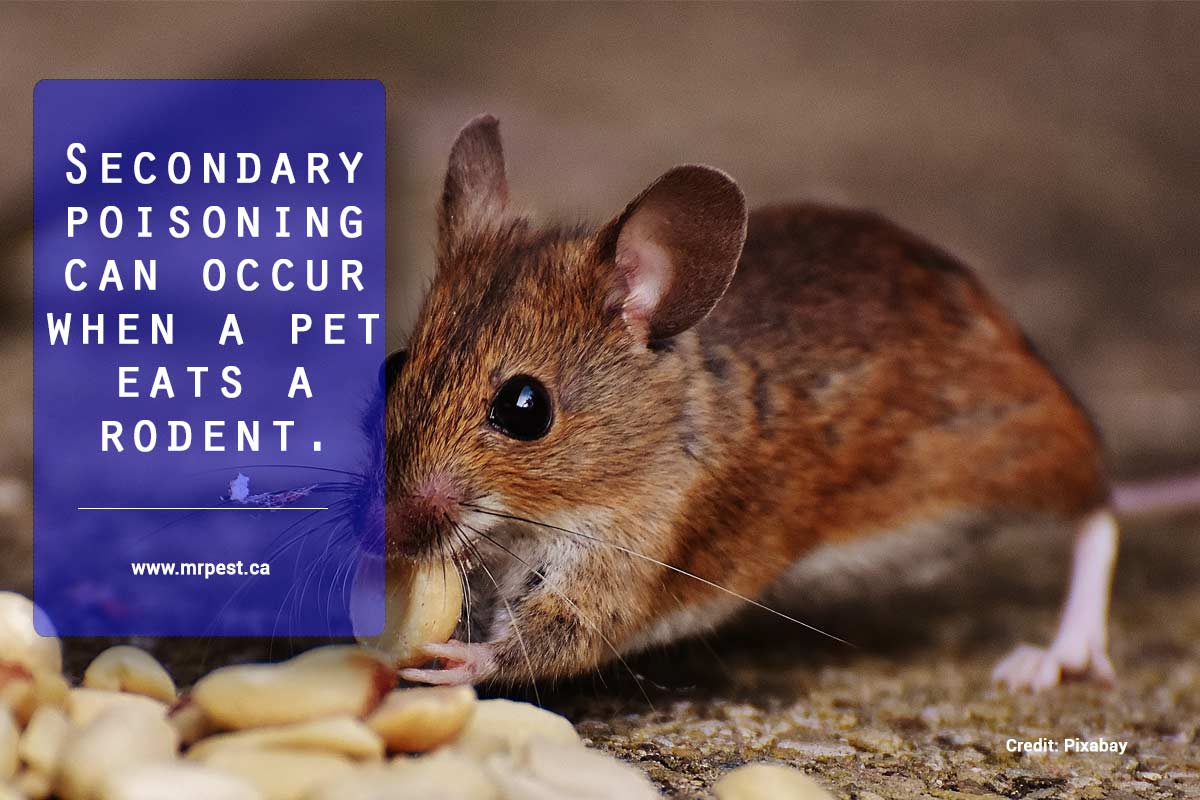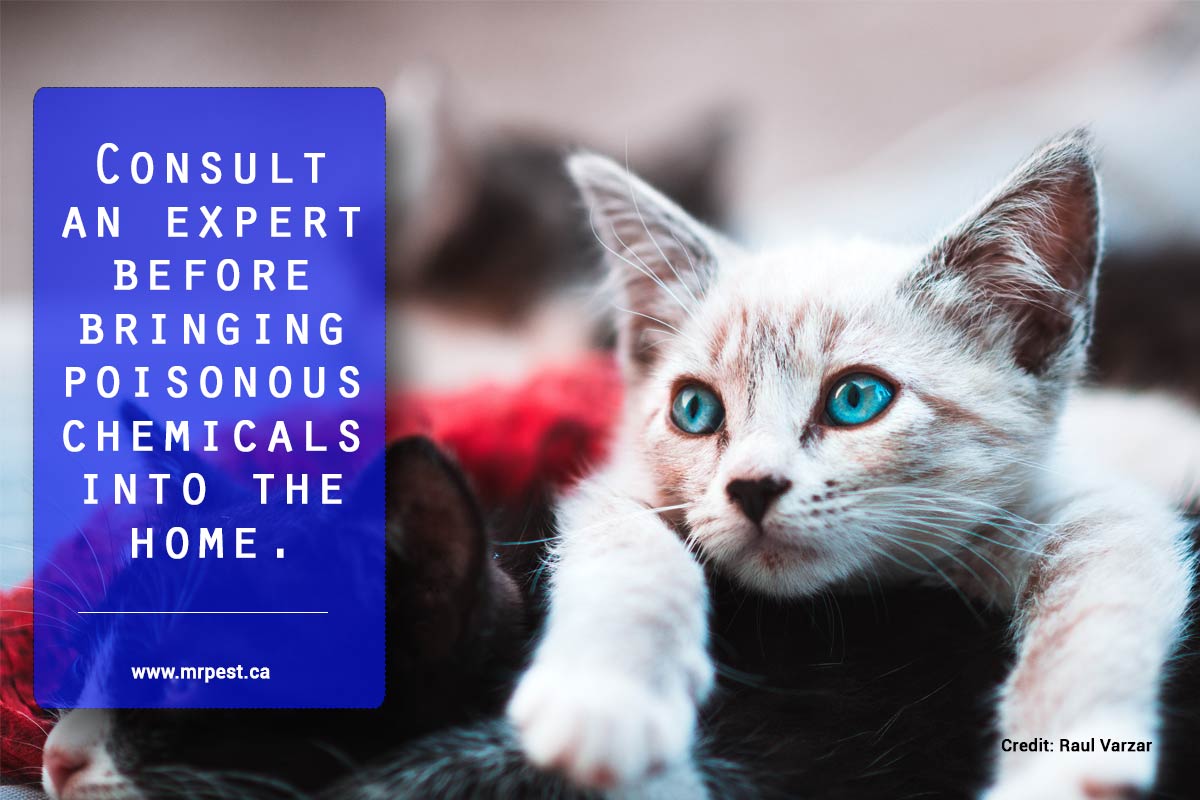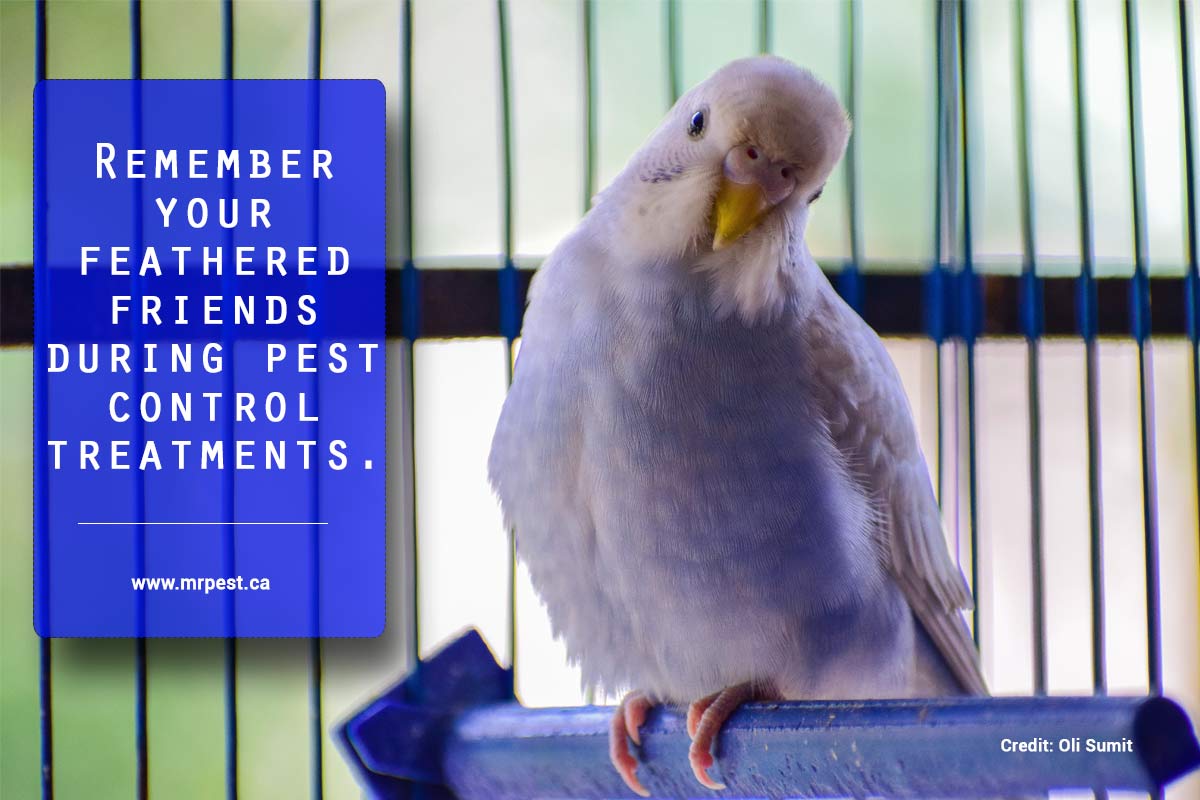For many households, pets are a beloved part of the family. Unfortunately, pests like fleas or ticks pose a risk to your furry friends—and to you. Read the following tips to keep everyone in your home safe.
The first step in protecting your pets is to know what kinds of pests might endanger their health. Some of the most common are:

Fleas
Flea bites create itchy red bumps that are very uncomfortable for pets. They are also known to cause health conditions like flea bite dermatitis, anemia, and tapeworms. Adult fleas lay eggs on a host, which then fall onto carpeting, furniture, bedding, or anything with which your dog or cat has contact. (One flea can lay as many as 20 eggs per day; they hatch in about two to 14 days.) These insects are very small and very fast, making them difficult to catch and control.
Generally, flea bites disappear slowly without long-term effects on a pet’s overall health. However, these tiny pests can cause certain diseases, including:
- Bubonic Plague
The plague that resulted in the deaths of nearly half the European population in the 14th century is the most well known flea-transmitted disease. While no longer an epidemic, bubonic plague still exists all over the world. It is carried by rodents and spreads to humans by fleas. Fortunately, antibiotics can successfully treat this rare condition. - Flea-Related Allergies
Some pets develop itchy dermatitis and hypersensitivity when bitten by fleas; the chronic scratching could lead to fur loss. - Tularemia
Tularemia is a serious illness that is transmitted when fleas bite infected rats. - Parasites
When cats and dogs groom themselves, they may accidentally ingest parasite-carrying fleas, ticks, or mosquitoes. This can put your pet at risk of tapeworm, heartworm, or other illness. (Never allow a pet to eat animal excrement; it could contain dangerous parasites, toxins, or viruses.)

Ticks
Ticks attach themselves to the body by inserting their mouths inside the host’s skin, where they begin to feed on blood. These insects transmit diseases that are harmful to pets and owners alike.
- Lyme Disease
Lyme disease is a bacterial infection that, if left untreated, can lead to serious health issues. In dogs, the most common sign of infection is arthritis (sudden pain, lameness, and swelling in one or more joints). Other symptoms that may be observed are:- Lack of appetite
- Dehydration
- Lethargy
- Fever
Infected cats may not always exhibit signs of Lyme disease; those that do might experience lameness, breathing difficulties, fever, and appetite loss.
- Rocky Mountain Spotted Fever
Rocky Mountain spotted fever is another tick-borne illness. Male ticks transmit the disease to females who, in turn, pass it on to their eggs. Ticks can also become infected by feeding on an animal that carries the illness. Typical symptoms of Rocky Mountain spotted fever in pets include poor appetite, vomiting, diarrhea, and swollen face or legs. - Powassan Virus
Powassan is an extremely rare tick-borne virus; as of 2017, only 21 human cases have been reported in Canada. It has been detected in other small, backyard mammals like squirrels and chipmunks, but no dogs or cats have been found to have the virus. (However, controlled experiments show that domesticated pets may be able to contract the disease.)

Rats and Mice
Many cats and dogs like to hunt for rodents (such as rats and mice). However, eating their captured prey could lead to serious issues such as:
- Intestinal Worms
Roundworms are common among puppies and kittens. These parasites feed on the contents of the intestines and remove nutrients from their host. If your pet ingests any type of rodent, see a veterinarian immediately. - Toxoplasmosis
Toxoplasma is a protozoan organism present in rodents. Cats and dogs that ingest infected rodents are at risk of toxoplasmosis. In dogs, this disease is dangerous; symptoms include pneumonia, diarrhea, liver issues, and nervous system failure. (The parasite usually does little harm to cats, but see your vet if you suspect your feline friend has eaten another animal.) - Secondary Poisoning
There is some risk of secondary poisoning when a pet ingests a rodent that has been poisoned. This depends largely on the timing of the incident, the type of hazardous material in the rodent’s system, and the number of rodents your pet has eaten.

Keeping Pets Safe from Pests
If your pets love spending time outside or socializing with other animals, they may eventually bring home unwanted pests. Prevent the problem from getting out of control; use these tips to protect your pet from blood-sucking intruders:
- Bathe pets regularly
Keep your pets clean and comfortable with regular baths and grooming. If necessary, use a shampoo that is meant to eliminate fleas and ticks. For long-haired pets, consider trimming their fur to prevent infestations. - Wash their belongings
Regularly clean everything your pet uses on a regular basis; this includes their toys and beds, as well as your rugs, carpets, and furniture. Additionally, keep your pet’s feeding area clean. Leftover pet food attracts bugs, so throw away any uneaten food immediately and store your regular supply in a tightly sealed container. - Maintain a clean yard
Fleas and ticks breed in tall grass or thick vegetation, and a yard that is kept clean and maintained helps to control their population. Cut or mow grass, remove wood or leaf piles, and maintain your garden beds. Rid your property of any standing water in which mosquitoes may reproduce. To keep rats and other animals away, close garbage bins (lock them, if possible) and remove any discarded trash from your home’s exterior. An expert in pest control can help assess your property’s risk of infestation. - Inspect pets after they’ve been outdoors
After your pets enjoy their day out in the sun, thoroughly check them for fleas, ticks, or other insects. Brush their fur and inspect them for any red bumps or bite marks. - Keep an eye on wildlife
Cats are known to hunt and leave their prized catch for you to find. While this may seem endearing, it could be harmful to both you and your pet. Dispose of any potentially infected or poisoned prey immediately; also be sure that your pet cannot retrieve it once it’s been safely removed).

Protecting Your Pets During Pest Control Services
Take the proper steps to keep your pets safe during pest control treatments. Inform the exterminator that you have animals in the home and ask what special precautions to take before and after the procedure. During the extermination process, keep your pet safely outside or in a pet carrier, crate, or a closed room that is not scheduled for service.
If your pet is the source of fleas, for example, schedule a flea treatment at the veterinarian to coincide with the extermination; this will limit the risk of your home getting reinfested.

Protecting Birds and Fish
Prepare birds, fish, and reptiles for indoor extermination treatments as well. Cover tanks or cages with a blanket or towel; this will protect them from poisonous air-borne mist or droplets. Take caution when placing fabric near a heat source (like an aquarium filter), as this is a fire hazard. Keep food in an airtight container, and remove any miscellaneous supplies (nets, tubing, feeding utensils) that may come into contact with chemicals.
Pest control is not a DIY project; taking matters into your own hands has its risks, including potential damage to your home. The safest and most effective way to deal with the problem is to call in the professionals.
At Mr. Pest Control, we pride ourselves on providing reliable, high-quality pest control services in Barrie, Midland, and Simcoe. Contact our trained specialists at (705) 739-7378 or (705) 326-3377 (Orillia) for a free estimate. We are available 24 hours a day, seven days a week.


